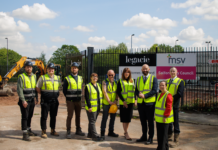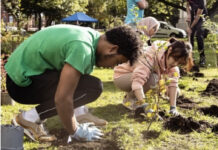The proportion of under-35s saying they have just one or no close friends has trebled in 10 years according to a report out this morning
The Onward think tank have published its latest research report, Age of Alienation, which explores the collapse in community and belonging among young people and how ministers should respond to it as we emerge from the pandemic.
Their analysis reveals that the pandemic has accelerated the prior decline of neighbourliness among younger people over recent decades, leaving them with worryingly low levels of social trust and community attachment
Compared to 20 years ago, under-35s are a third as likely to say they regularly speak to neighbours and a third less likely to borrow and exchange favours with them.
Millennials and Generation Z are less likely to be members of a group or participate in group activities than previous generations were at similar ages.The share of young people who agree that “generally speaking, most people can be trusted” has fallen twice as fast among under-35s as among over-35s in recent decades. Today just 30% of under-35s say most people are generally trustworthy, versus 40% for over-35s.
People under the age of 25 are three times more likely than people over the age of 65 years old to distrust their neighbours.
Only around half (54%) of under-25s say they trust their family “completely”, compared to 80% among over-65s.
To reverse these trends, the report puts forward a series of recommendations for the Government to take steps to give young people the security and opportunity to give back to their communities.
Introduce national civic service to revive civic participation among young people. This would create a voluntary expectation that every 18-35 year old should do 10 days of unpaid social action each year, with time off work to do so, or undertake a paid “year of service” instead.
Offer young people civic rewards to incentivise community engagement. 18-35 year olds who have conducted 10 days of volunteering each year should be eligible for a partial write off of student loan debt, credits towards digital or vocational training, or a national insurance rebate.
Democratise public spaces and high streets to give communities places to come together. In 2020, nearly 1 in 25 vacant high street shops had been vacant for three or more years and councils owned 100,000 empty garages.
Ministers should create automatic rights for communities to take over underutilised spaces for enterprise hubs, sports clubs and charities.
Give young people greater security by creating 500,000 new reduced rent homes. This would create a new class of housing – Homes for Young People – available to working tenants under the age of 40. They would have discounted rent by 10-20% below market rates for up to ten years, allowing young people to put down roots and save up towards home ownership.
Will Tanner, Director of Onward:
“Young people are suffering an epidemic of loneliness that, if left unattended, will erode the glue that holds our society together. After decades of community decline and fifteen months of rolling lockdowns, young people have fewer friends, trust people less, and are more alienated from their communities than ever before. And it is getting worse with every generation.
“This is a crisis that demands a bold response. National civic service and rewards for time spent volunteering are just some of the ways we could encourage a new culture of connection. In truth, we may need to go much further. But if the pandemic has taught us anything, it is that human connection and local place deserve a much greater place in our political debate than they have enjoyed in the past.”
Lord James O’Shaughnessy, Chair of the Repairing our Social Fabric programme:
“This report reveals that Britain’s fraying social fabric is not just geographic in nature but generational, with each new cohort of young people less interwoven with, and supported by, wider society than the one before it.
“This is profoundly worrying. Strong social attachments are the foundation of democratic society and the basis for human health and prosperity. That is why ministers must take radical steps to give young people back a sense of connection and belonging.”







